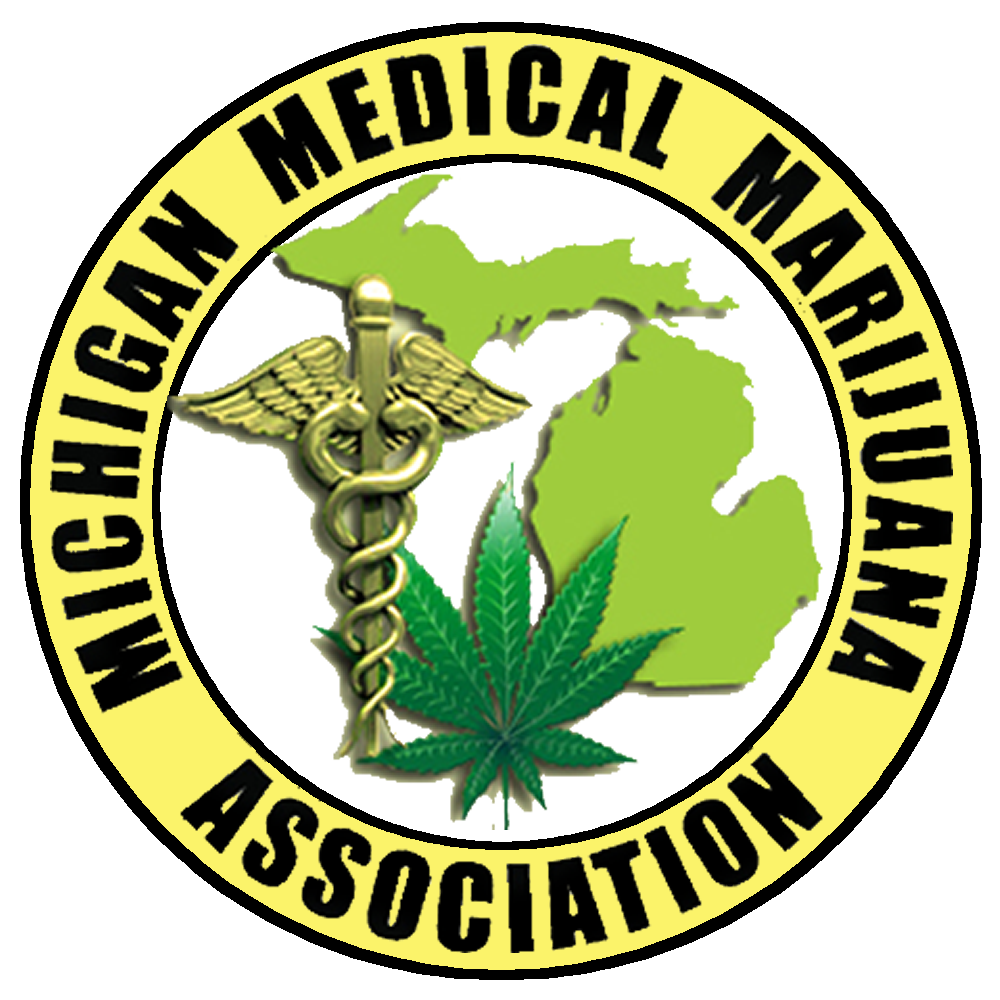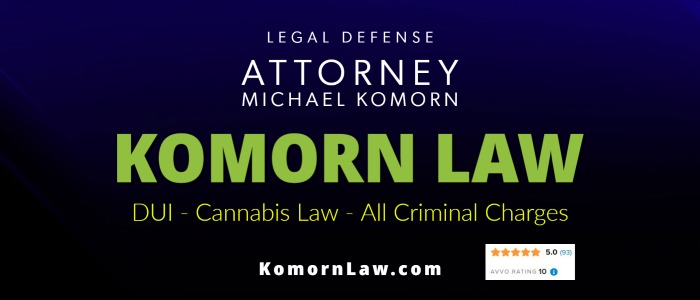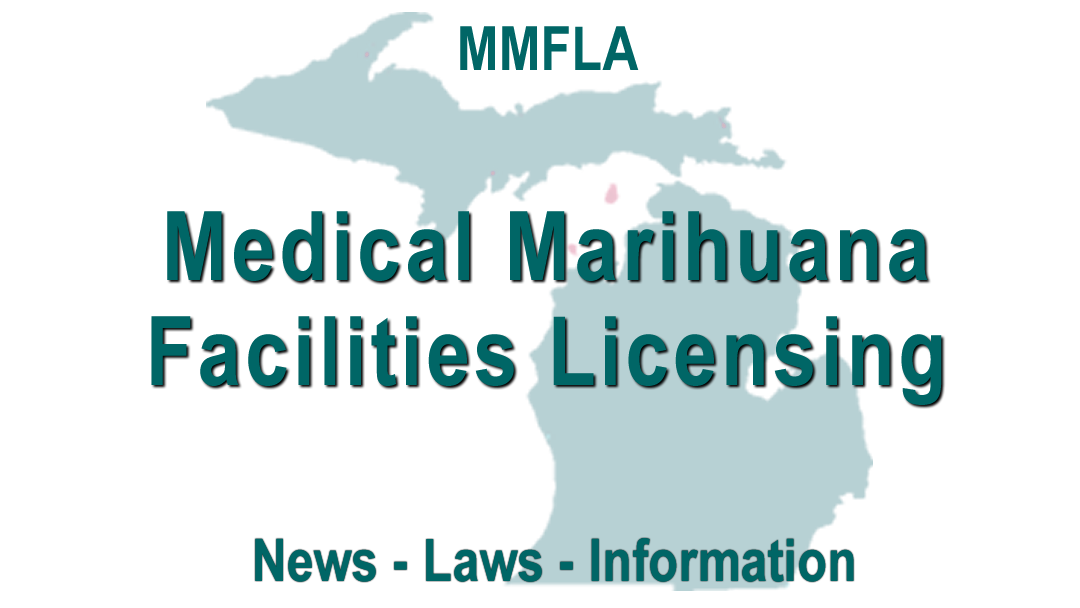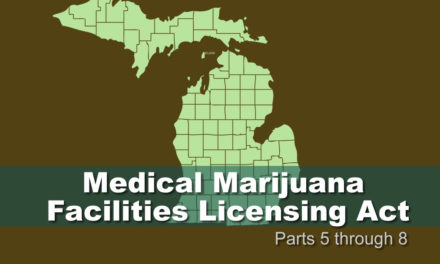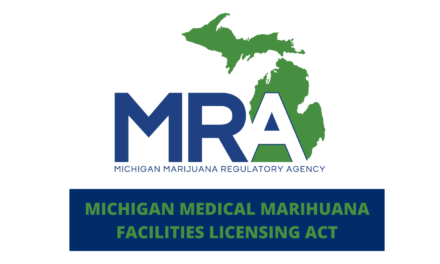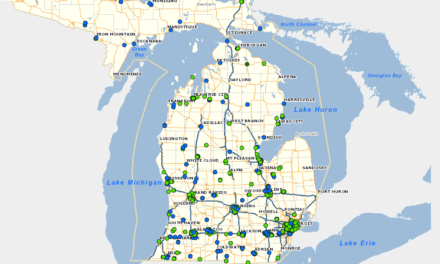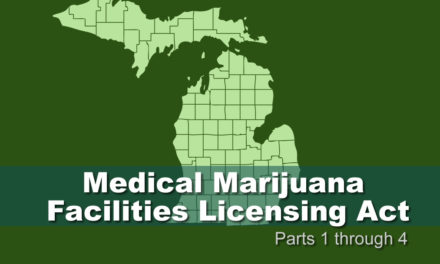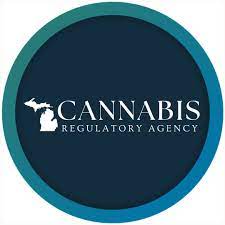Part B: Medical Marihuana Facilities Licensing Act
8.8 Immunity and Protected Activities
The Medical Marihuana Facilities Licensing Act (MMFLA) creates a state licensing system that provides licensees, certified public accountants, and financial institutions with immunity from prosecution for MMFLA-compliant marijuana-related activities. The MMFLA licenses and regulates medical marihuana growers, processors, provisioning centers, secure transporters, and safety compliance facilities.
The MMFLA “does not limit the medical purpose defense provided in . . .MCL 333.26428 . . . to any prosecution involving marihuana.” MCL333.27204.
A. Licensee Immunity
“Except as otherwise provided in [the MMFLA], if a person has been granted a state operating license and is operating within the scope of the license, the licensee and its agents are not subject to any of the following for engaging in activities described in [MCL333.27201(2)]:
(a) Criminal penalties under state law or local ordinances regulating marihuana.
(b) State or local criminal prosecution for a marihuana related offense.
(c) State or local civil prosecution for a marihuana related offense.
(d) Search or inspection, except for an inspection authorized under this act by law enforcement officers, the municipality, or the department.
(e) Seizure of marihuana, real property, personal property, or anything of value based on a marihuanarelated offense.
(f) Any sanction, including disciplinary action or denial of a right or privilege, by a business or occupational or professional licensing board or bureau based on a marihuana-related offense.” MCL 333.27201(1).
B. Protected Activities
“The following activities are protected under [MCL 333.27201(1)] if performed under a state operating license within the scope of that license and in accord with [the MMFLA], rules, and any ordinance adopted under [MCL 333.27205294]:
(a) Growing marihuana.
(b) Purchasing, receiving, selling, transporting, or transferring marihuana from or to a licensee, a licensee’s agent, a registered qualifying patient, or a registered primary caregiver.
(c) Possessing marihuana.
(d) Possessing or manufacturing marihuana paraphernalia for medical use.
(e) Processing marihuana.
(f) Transporting marihuana.
(g) Testing, transferring, infusing, extracting, altering, or studying marihuana.
(h) Receiving or providing compensation for products or services.” MCL 333.27201(2).
C. Immunity for Owners and Lessors of Real Property
“Except as otherwise provided in [the MMFLA], a person who owns or leases real property upon which a marihuana facility is located and who has no knowledge that the licensee violated [the MMFLA] is not subject to any of the following for owning, leasing, or permitting the operation of a marihuana facility on the real property:
(a) Criminal penalties under state law or local ordinances regulating marihuana.
(b) State or local civil prosecution based on a marihuana-related offense.
(c) State or local criminal prosecution based on a marihuana-related offense.
(d) Search or inspection, except for an inspection authorized under this act by law enforcement officers, the municipality, or the department.
(e) Seizure of any real or personal property or anything of value based on a marihuana-related offense.
(f) Any sanction, including disciplinary action or denial of a right or privilege, by a business or occupational or professional licensing board or bureau.” MCL333.27201(3).
D. Immunity for Certified Public Accountants
“Except as otherwise provided in [the MMFLA], a certified public accountant who is licensed under article 7 of the occupational code, . . . MCL 339.720 to [MCL] 339.736, is not subject to any of the following for engaging in the practice of public accounting as that term is defined in . . . MCL 339.720, for an applicant or licensee who is in compliance with [the MMFLA], rules, and the Michigan medical marihuana act:
(a) Criminal penalties under state law or local ordinances regulating marihuana.
(b) State or local civil prosecution based on a marihuana-related offense.
(c) State or local criminal prosecution based on a marihuana-related offense.
(d) Seizure of any real or personal property or anything of value based on a marihuana-related offense.
(e) Any sanction, including disciplinary action or denial of a right or privilege, by a business or occupational or professional licensing board or bureau based on a marihuana-related offense.” MCL 333.27201(4).
E. Immunity for Financial Institutions
“Except as otherwise provided in [the MMFLA], a financial institution is not subject to any of the following for providing a financial service to a licensee under [the MMFLA]:
(a) Criminal penalties under state law or local ordinances regulating marihuana.
(b) State or local civil prosecution based on a marihuana-related offense.
(c) State or local criminal prosecution based on a marihuana-related offense.
(d) Seizure of any real or personal property or anything of value based on a marihuana-related offense.
(e) Any sanction, including disciplinary action or denial of a right or privilege, by a business or occupational or professional licensing board or bureau based on a marihuana-related offense.” MCL 333.27201(5).
Arrested for or Charged with DUI or DRUGGED DRIVING?
Contact Komorn Law 800-656-3557 or Visit the Komorn Law website
F. Immunity for Registered Qualifying Patients and Primary Caregivers
“A registered qualifying patient or registered primary caregiver is not subject to criminal prosecution or sanctions for purchasing marihuana from a provisioning center if the quantity purchased is within the limits established under the [MMMA]. A registered
primary caregiver is not subject to criminal prosecution or sanctions for any transfer of 2.5 ounces or less of marihuana to a safety compliance facility for testing.” MCL333.27203.
G. Certain Acts Do Not Apply to Regulation of Commercial Entities Under the MMFLA
“For the purposes of regulating the commercial entities established under [the MMFLA], any provisions of the following acts that are inconsistent with this act do not apply to a grower, processor, secure transporter, provisioning center, or safety compliance facility operating in compliance with [the MMFLA]:
(a) The business corporation act, 1972 PA 284, MCL450.1101 to [MCL] 450.2098.
(b) The nonprofit corporation act, 1982 PA 162, MCL450.2101 to [MCL] 450.3192.
(c) 1931 PA 327, MCL 450.98 to [MCL] 450.192.
(d) The Michigan revised uniform limited partnership act, 1982 PA 213, MCL 449.1101 to [MCL] 449.2108.
(e) The Michigan limited liability company act, 1993 PA 23, MCL 450.4101 to [MCL] 450.5200.
(f) 1907 PA 101, MCL 445.1 to [MCL] 445.5.
(g) 1913 PA 164, MCL 449.101 to [MCL] 449.106.
(h) The uniform partnership act, 1917 PA 72, MCL 449.1to [MCL] 449.48.” MCL 333.27201(6).
8.9 Implementation, Administration, and Enforcement of the MMFLA
“The department, in consultation with the board, shall promulgate rules and emergency rules as necessary to implement, administer, and enforce [the MMFLA]. The rules must ensure the safety, security, and integrity of the operation of marihuana facilities[.]” MCL 333.27206. MCL 333.27206 lists several specific rules that the department, in consultation with the board, must promulgate. Id.
The medical marihuana licensing board is responsible for implementing the MMFLA. MCL 333.27302. “The medical marihuana licensing board is created within the department of licensing and regulatory affairs.” MCL333.27301(1).
Several specific duties of the board are prescribed by statute, including granting or denying state operating licenses and regulatory responsibilities. MCL 333.27302. The MMFLA also creates a marihuana advisory panel within the department. MCL 333.27801(1).
This panel is composed of representatives from various interested parties and makes recommendations to the board “concerning promulgation of rules and, as requested by the board or the department, the administration, implementation, and enforcement of [the MMFLA] and the marihuana tracking act.” MCL 333.27801(2); MCL 333.27801(10).
“The board has jurisdiction over the operation of all marihuana facilities.” MCL333.27303(1). The board can seek the cooperation and assistance of the Michigan State Police. MCL 333.27303(2).
Further, “[a] marihuana facility and all articles of property in that facility are subject to examination at any time by a local police agency or the department of state police.” MCL 333.27208.
The MMFLA sets out specific requirements for board members, including the appointment of members, composition of the board, character requirements, employment restrictions, and other requirements and restrictions. MCL 333.27301. Board members are also required to file disclosure forms and provide immediate notice regarding any potential conflicts of interest regarding licensees. MCL 333.27305.
8.10 Licensing
Individuals may apply to the board for a state operating license. MCL333.27401(1). State operating licenses are specifically granted as a class A, B, or C grower; processor; provisioning center; secure transporter; or safety compliance facility license. Id. Applications must be made under oath on a form provided by the board, and must contain specific information as required by statute. Id.
A detailed discussion of the board’s review process and the eligibility requirements for a license are outside the scope of this benchbook.Information about licensing is discussed in detail in MCL 333.27401—MCL 333.27409.
Licenses are exclusive to the licensee, and the licensee must apply for and receive the board’s approval before a license is transferred, sold, or purchased. MCL 333.27406.
The board has broad authority to deny, suspend, revoke, or restrict a license and/or impose a fine in compliance with the Administrative Procedures Act, MCL 24.201 et seq. See MCL 333.27407. State operating licenses are a revocable privileged granted by Michigan and are not a property right. MCL 333.27409.
8.11 Licensees
- Grower License
“A grower license authorizes the grower to grow not more than the following number of marihuana plants under the indicated license class for each license the grower holds in that class:
(a) Class A – 500 marihuana plants.
(b) Class B – 1,000 marihuana plants.
(c) Class C – 1,500 marihuana plants.” MCL333.27501(1).
A grower license authorizes:
the sale of marihuana plants to a grower only by means of a secure transporter, MCL 333.27501(2);
- the sale or transfer of seeds, seedlings, or tissue cultures to a grower from a registered primary caregiver or another grower is permitted without using a secure transporter, MCL 333.27501(2);
- a grower to transfer marihuana without using a secure transporter to a processor or provisioning center if “[t]he processor or provisioning center occupies the same location as the grower and the marihuana is transferred using only private real property without accessing public roadways,” and “[t]he grower enters each transfer into the statewide monitoring system,” MCL 333.27501(3);
- the sale of marihuana, other than seeds, seedlings, tissue cultures, and cuttings, to a processor or provisioning center, MCL 333.27501(4); and • except as provided in MCL 333.27501(2)-(3) and MCL333.27505,295 the grower to transfer marihuana only by means of a secure transporter. MCL 333.27501(5).
“To be eligible for a grower license, the applicant and each investor in the grower must not have an interest in a secure transporter or safety compliance facility.” MCL333.27501(6).
“Until December 31, 2018, for a period of 30 days after the issuance of a grower license and in accord with rules, a grower may transfer [marihuana plants, seeds, and seedlings] that are lawfully possessed by an individual formerly registered as a primary caregiver who is an active employee of the grower[.]” MCL 333.27501(7).
A grower shall comply with all of the following:
(a) Until December 31, 2021, have, or have as an active employee an individual who has, a minimum of 2 years’ experience as a registered primary caregiver.
(b) While holding a license as a grower, not be a registered primary caregiver and not employ an individual who is simultaneously a registered primary caregiver.
(c) Enter all transactions, current inventory, and other information into the statewide monitoring system as required in [the MMFLA], rules, and the marihuana tracking act.” MCL 333.27501(8).
“A grower license does not authorize the grower to operate in an area unless the area is zoned for industrial or agricultural uses or is unzoned and otherwise meets the requirements established in [MCL 333.27205(1)” MCL 333.27501(9).
B. Processor License
A processor license authorizes:
- purchase of marihuana only from a grower;
- sale of marihuana-infused products or marihuana only to a provisioning center or another processor;except as provided in MCL 333.27502(2) and 27505,Transfer of marihuana only by means of a secure transporter; and
- transfer of marihuana without using a secure transporter to a grower or provisioning center if “[t]he grower or provisioning center occupies the same location as the processor and the marihuana is transferred using only private real property without accessing public roadways,”and “[t]he processor enters each transfer into the statewide monitoring system” MCL 333.27502(1)-(2).
“To be eligible for a processor license, the applicant and each investor in the processor must not have an interest in a secure transporter or safety compliance facility.” MCL 333.27502(3).
“Until December 31, 2018, for a period of 30 days after the issuance of a processor license and in accord with rules, a processor may transfer [marihuana plants and usable marihuana] that are lawfully possessed by an individual formerly registered as a primary caregiver who is an active employee of the processor[.]” MCL333.27502(4).
“A processor shall comply with all of the following:
(a) Until December 31, 2021, have, or have as an active employee an individual who has, a minimum of 2 years’ experience as a registered primary caregiver.
(b) While holding a license as a processor, not be a registered primary caregiver and not employ an individual who is simultaneously a registered primary caregiver.
(c) Enter all transactions, current inventory, and other information into the statewide monitoring system as required in [the MMFLA], rules, and the marihuana tracking act.” MCL 333.27502(5).
C. Secure Transporter License
“A secure transporter license authorizes the licensee to store and transport marihuana and money associated with the purchase or sale of marihuana between marihuana facilities for a fee upon request of a person with legal custody of that marihuana or money.”
MCL 333.27503(1). A secure transporter license “does not authorize transport to a registered qualifying patient or registered primary caregiver.” Id. “If a secure transporter has its primary place of business in a municipality that has adopted an ordinance under
[MCL 333.27205] authorizing that marihuana facility, the secure transporter may travel through any municipality.” MCL333.27503(1).
“To be eligible for a secure transporter license, the applicant and each investor with an interest in the secure transporter must not have an interest in a grower, processor provisioning center, or safety compliance facility and must not be a registered qualifying patient or a registered primary caregiver.” MCL 333.27503(2).
“A secure transporter shall enter all transactions, current inventory, and other information into the statewide monitoring system as required in [the MMFLA], rules, and the marihuana tracking act.” MCL 333.27503(3).
“A secure transporter shall comply with all of the following:
(a) Each driver transporting marihuana must have a chauffeur’s license issued by this state.
(b) Each employee who has custody of marihuana or money that is related to a marihuana transaction shall not have been convicted of or released from incarceration for a felony under the laws of this state, any other state, or the United States within the past 5 years or have been convicted of a misdemeanor involving a controlled substance within the past 5 years.
(c) Each vehicle must be operated with a 2-person crew with at least 1 individual remaining with the vehicle at all times during the transportation of marihuana.
(d) A route plan and manifest must be entered into the statewide monitoring system, and a copy must be carried in the transporting vehicle and presented to a law enforcement officer upon request.
(e) The marihuana must be transported in 1 or more sealed containers and not be accessible while in transit.
(f) A secure transporting vehicle must not bear markings or other indication that it is carrying marihuana or a marihuana-infused product.” MCL333.27503(4).
“A secure transporter is subject to administrative inspection by a law enforcement officer at any point during the transportation of marihuana to determine compliance with [the MMFLA].” MCL333.27503(5).
D. Provisioning Center License
A provisioning center license authorizes:
the purchase or transfer of marihuana only from a grower or processor;
- the sale or transfer of marihuana only to a registered qualifying patient or registered primary caregiver; and
- the transfer of marihuana to or from a safety compliance facility for testing by means of a secure transporter or as provided in MCL 333.27505. 27504(1)-(2).
“Except as otherwise provided in [MCL 333.27505] and [MCL333.27504(1)] all transfers of marihuana to a provisioning center from a separate marihuana facility must be by means of a secure transporter.” MCL 333.27504(1).
“A transfer of marihuana to a provisioning center from a marihuana facility that occupies the same location as the provisioning center does not require a secure transporter if the marihuana is transferred to the provisioning center using only private real property without accessing public roadways.” MCL 333.27504(1).
“To be eligible for a provisioning center license, the applicant and each investor in the provisioning center must not have an interest in a secure transporter or safety compliance facility.” MCL333.27504(3).
“A provisioning center shall comply with all of the following:
(a) Sell or transfer marihuana to a registered qualifying patient or registered primary caregiver only after it has been tested and bears the label required for retail sale.
(b) Enter all transactions, current inventory, and other information into the statewide monitoring system as required in this act, rules, and the marihuana tracking act.
(c) Before selling or transferring marihuana to a registered qualifying patient or to a registered primary caregiver on behalf of a registered qualifying patient, inquire of the statewide monitoring system to determine whether the patient and, if applicable, the caregiver hold a valid, current, unexpired, and unrevoked registry identification card and that the sale or transfer will not exceed the daily and monthly purchasing limit established by the medical marihuana licensing board under [the MMFLA].
(d) Not allow the sale, consumption, or use of alcohol or tobacco products on the premises.
(e) Not allow a physician to conduct a medical examination or issue a medical certification document on the premises for the purpose of obtaining a registry
identification card.” MCL 333.27504(4).
E. Safety Compliance Facility License
“In addition to transfer and testing authorized in [MCL333.27203298], a safety compliance facility license authorizes the safety compliance facility to do all of the following without using a secure transporter:
(a) Take marihuana from, test marihuana for, and return marihuana to only a marihuana facility.
(b) Collect a random sample of marihuana at the marihuana facility of a grower, processor, or provisioning center for testing.” MCL 333.27505(1).
“A safety compliance facility must be accredited by an entity approved by the board by 1 year after the date the license is issued or have previously provided drug testing services to this state or this state’s court system and be a vendor in good standing in regard to those services.” MCL 333.27505(2).
“The board may grant a variance from this requirement upon a finding that the variance is necessary to protect and preserve the public health, safety, or welfare.” Id.
“To be eligible for a safety compliance facility license, the applicant and each investor with any interest in the safety compliance facility must not have an interest in a grower, secure transporter, processor, or provisioning center.” MCL 333.27505(3).
“A safety compliance facility shall comply with all of the following:
(a) Perform tests to certify that marihuana is reasonably free of chemical residues such as fungicides and insecticides.
(b) Use validated test methods to determine tetrahydrocannabinol, tetrahydrocannabinol acid, cannabidiol, and cannabidiol acid levels.
(c) Perform tests that determine whether marihuana complies with the standards the board establishes for microbial and mycotoxin contents.
(d) Perform other tests necessary to determine compliance with any other good manufacturing practices as prescribed in rules.
(e) Enter all transactions, current inventory, and other information into the statewide monitoring system as required in this act, rules, and the marihuana tracking act.
(f) Have a secured laboratory space that cannot be accessed by the general public.
(g) Retain and employ at least 1 staff member with a relevant advanced degree in a medical or laboratory science.” MCL 333.27505(4).
F. Third-Party Inventory Control and Tracking
“A licensee shall adopt and use a third-party inventory control and tracking system that is capable of interfacing with the statewide monitoring system to allow the licensee to enter or access information in the statewide monitoring system as required under [the MMFLA] and rules.” MCL 333.27207.
Several specific capabilities are required by statute for whatever inventory control and tracking system a licensee adopts. Id.
Part C: Marihuana Tracking Act
8.12 Statewide Monitoring System
The Marihuana Tracking Act, MCL 333.27901 et seq., establishes a statewide monitoring system to track marijuana and marijuana products in commercial trade, monitor compliance with laws regulating marijuana, and gather information regarding marijuana safety and commercial marijuana trade. Specifically, MCL 333.27903(1) instructs:
“The department shall establish a statewide monitoring system for use as an integrated marihuana tracking, inventory, and verification system. The system must allow for interface with third-party inventory and tracking systems as described in [MCL 333.27207] to provide for access by this state, licensees, and law enforcement personnel, to the extent that they need and are authorized to receive or submit the information, to comply with, enforce, or administer [the Marihuana Tracking Act]; the [MMMA]; or the [MMFLA].”
“At a minimum, the system must be capable of storing and providing access to information that, in conjunction with 1 or more third-party inventory control and tracking systems under [MCL 333.27207], allows all of the following:
(a) Verification that a registry identification card is current and valid and has not been suspended, revoked, or denied.
(b) Retention of a record of the date, time, quantity, and price of each sale or transfer of marihuana to a registered qualifying patient or registered primary caregiver.
(c) Determination of whether a particular sale or transfer transaction will exceed the permissible limit established under the [MMMA].
(d) Effective monitoring of marihuana seed-to-sale transfers.
(e) Receipt and integration of information from third-party inventory control and tracking systems under [MCL333.27207].” MCL 333.27903(2).
8.13 Confidential Information
“The information in the system is confidential and is exempt from disclosure under [FOIA]. Information in the system may be disclosed for purposes of enforcing the [Marihuana Tracking Act, the MMMA, and the MMFLA].” MCL 333.27904.
THINKING OF STARTING A CANNABIS BUSINESS?
Contact Komorn Law – 800-656-3557
